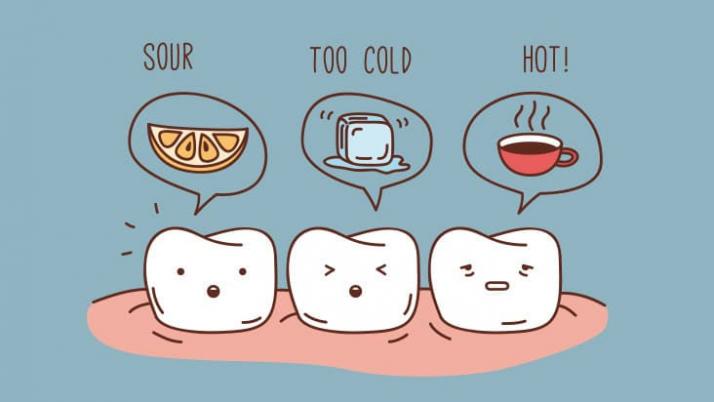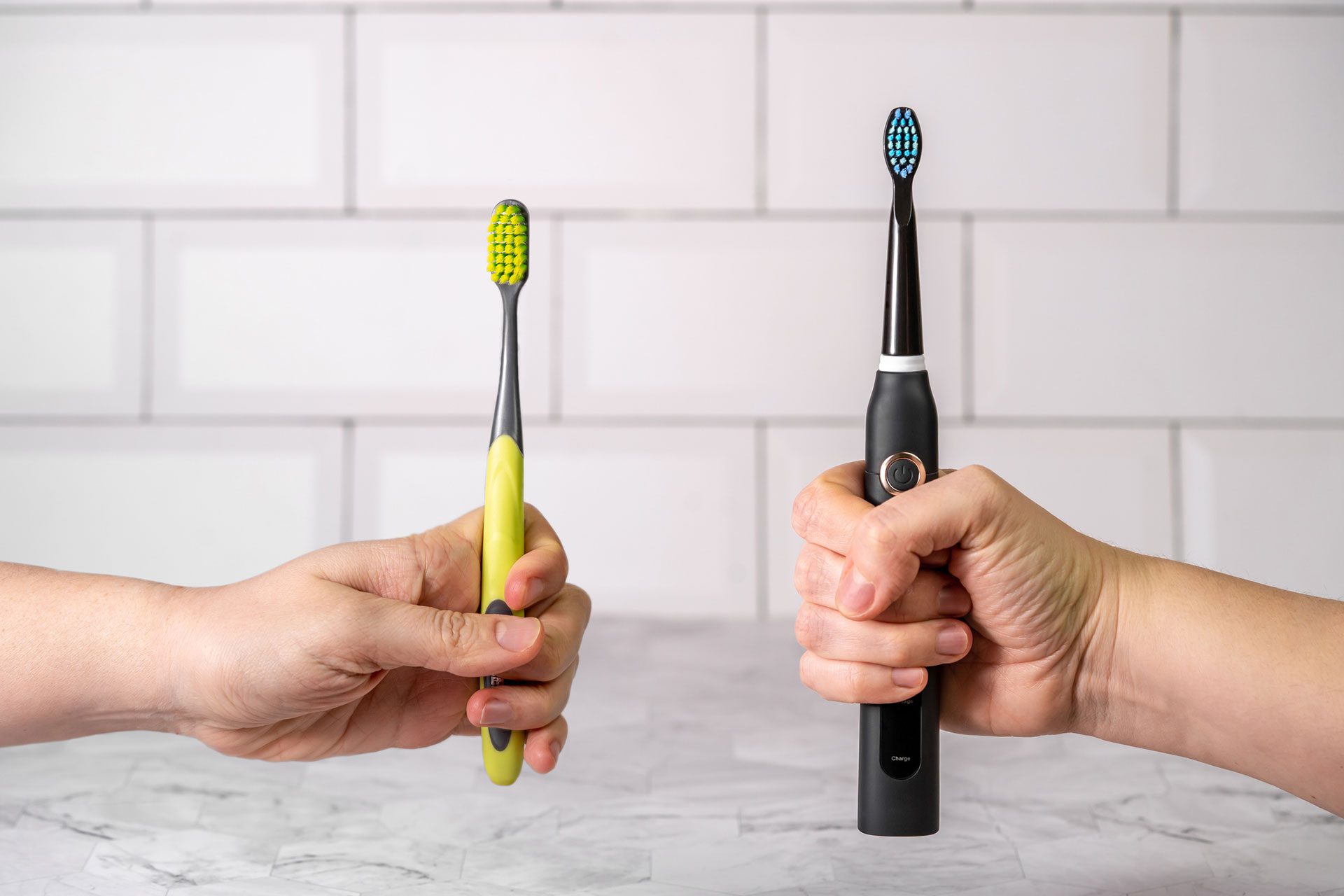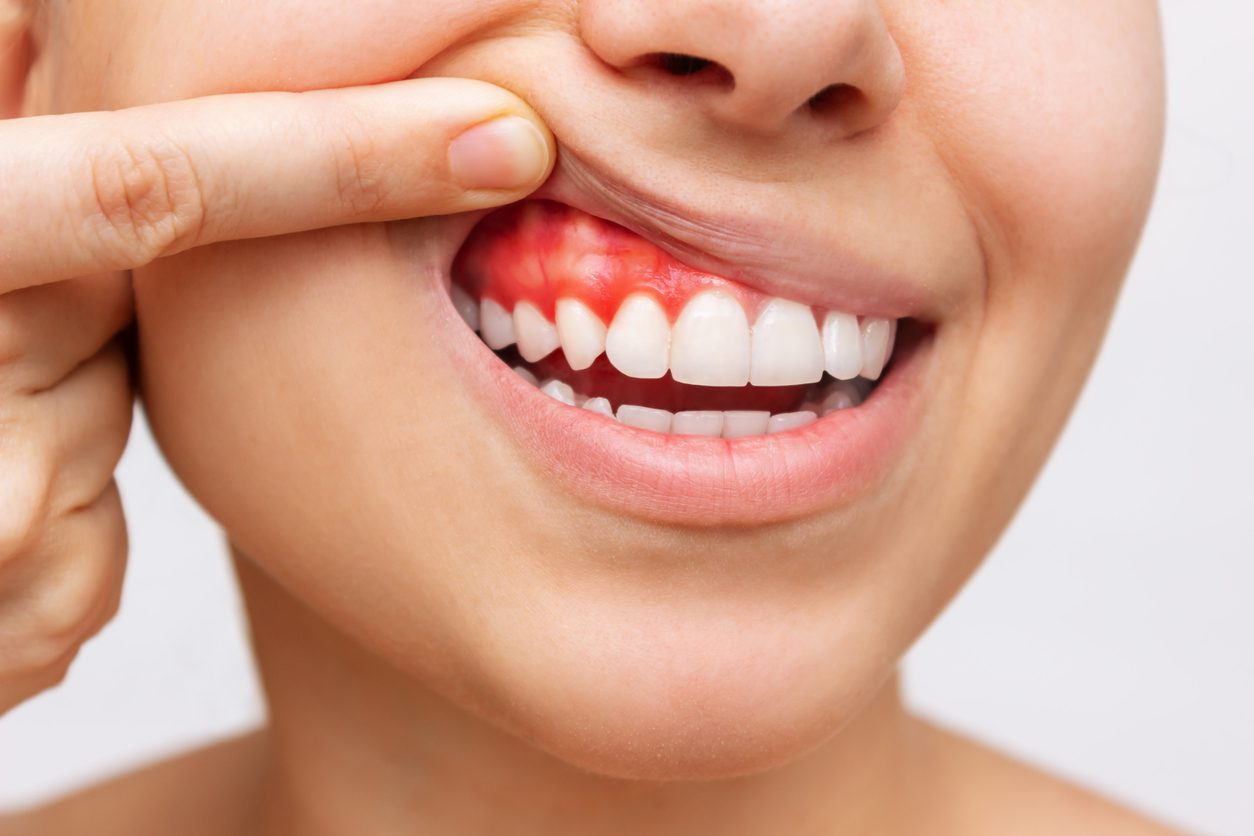Ever experienced a sudden, sharp flash of pain in your tooth while eating ice cream, sipping on some hot soup, or even when you open your mouth outside in the cold air? What about tenderness or stinging when brushing or flossing your teeth?
If you’ve dealt with any of these problems before – or worse, experiencing it on a constant basis – then you are likely having issues with tooth sensitivity, and will need to seek treatment sooner rather than later. In this blog post, we’ll take a look at the causes of sensitive teeth and how the professional dentists at Naenae Dental Clinic will treat your tooth-sensitivity issue.
Why are my teeth sensitive?
Teeth become sensitive when their protective enamel layer is worn down and the soft layer of dentin underneath is exposed. Dentin is connected to the nerve that triggers pain in teeth, so contact with any hot, cold or acidic substances will trigger the ‘sensitivity’.
Enamel can be eroded by brushing too fiercely with a hard-bristled toothbrush, eating acidic foods regularly, build-up of plaque, teeth grinding, and long-term mouthwash use, among other causes. Cavities and cracked teeth are also ways in which the enamel layer can be penetrated to expose the dentin, and problems such as gum recession and gingivitis can expose dentin around the tooth’s root.
Teeth may also be sensitive after some invasive dental procedures, however this pain will usually disappear within four to six weeks typically.
What can I do at home to soothe the pain?
A good place to start will be avoiding the excessively hot, cold, or acidic foods and drinks that trigger the sensitivity and seeking a dentist to discuss what the cause of this is. Healthy teeth are not typically sensitive to acidic or hot foods and, if they are, this is a sign to make an appointment with a dentist before it gets worse.
Additionally, dentists recommend immediately switching to a soft-bristle toothbrush and a fluoridated desensitising toothpaste to make sure you’re not hurting yourself while brushing your teeth. If teeth grinding is part of the cause, wearing a night guard in the evenings can stop further enamel wear and breakdown.
How Naenae Dental treats sensitive teeth
At Naenae Dental Clinic, we are often able to address the tooth abrasion or decay causing the sensitivity with a tooth restoration – such as a crown, filling, or ceramic onlay or inlay – which covers up the dentin level and prevents anything getting to those nerves.
If these minimally invasive treatments aren’t possible or haven’t stopped the sensitivity, and if there is significant infection or damage to the nerve of the tooth, then a root canal treatment may be required to stop the pain. If this isn’t a viable option due to the extent of decay or damage to the surrounding gum area, we may suggest that the tooth be removed instead. We pride ourselves on using the latest technology to deliver root canal treatments that are pain-free and highly successful!
Whether you want to protect your oral health by seeing a dental hygienist, or need an emergency dentist to help you deal with extreme sensitivity and pain, Naenae Dental Clinic is the best dentist Wellington has to offer!






